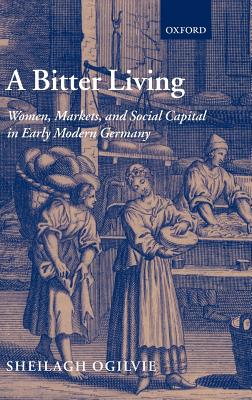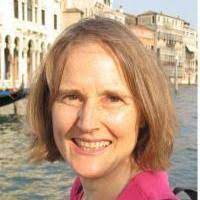

 Oxford University Press, USA
Oxford University Press, USA
A Bitter Living: Women, Markets, and Social Capital in Early Modern Germany


Key Metrics
- Sheilagh Ogilvie
- Oxford University Press, USA
- Hardcover
- 9780198205548
- 9.21 X 6.14 X 0.94 inches
- 1.67 pounds
- History > World - General
- English
 Secure Transaction
Secure TransactionBook Description
This book tackles these questions in a new way. It uses a unique micro-level database and rich qualitative sources to illuminate women's contribution to a particular pre-industrial economy: the German state of W�rttemberg, which was in many ways typical of early modern Europe. Markets expanded here between 1600 and 1800, opening opportunities outside the household for both women and men. But they were circumscribed by strong 'social networks' - local communities and rural guilds with state support. Modern political scientists have praised social networks for generating 'social capital' - shared norms and collective sanctions which benefit network insiders, and sometimes the whole society. But this book reveals the dark side of 'social capital': insiders excluded and harmed outsiders, especially women, to the detriment of the economy at large.
Early modern European economies differed widely in their restrictions on the role of women. But the monocausal approaches (technological, cultural, institutional) that dominate the existing literature cannot explain these differences. This book proposes an alternative approach driven by the decision individual women themselves made as they negotiated a wide array of constraints and pressures (including technological, cultural, and institutional ones). We are not only brought closer to the 'bitter living' pre-industrial women scraped together, but find out how it came to be so bitter, and how restrictions on women inflicted a bitter living on everyone.
Author Bio
I grew up in the western Canadian city of Calgary, and have since lived in Scotland, Germany, England, the USA and the Czech Republic. I studied at the Universities of St Andrews, Cambridge, and Chicago, and was a Research Fellow at Trinity College Cambridge.
I then taught for 31 years in the Faculty of Economics at the University of Cambridge, before moving to the Chichele Professorship of Economic History at All Souls College Oxford in 2020.
Research Interests
I explore the lives of ordinary people in the past and try to explain how poor economies get richer and improve human well-being. I’m particularly interested in how social institutions – the formal and informal constraints on economic activity – shaped economic development in Europe between the Middle Ages and the present day.
In recent years my publications have analysed guilds, serfdom, communities, the family, gender, human capital investment, consumption, and state capacity.
Source: University of Oxford
Videos






Community reviews
Write a ReviewNo Community reviews